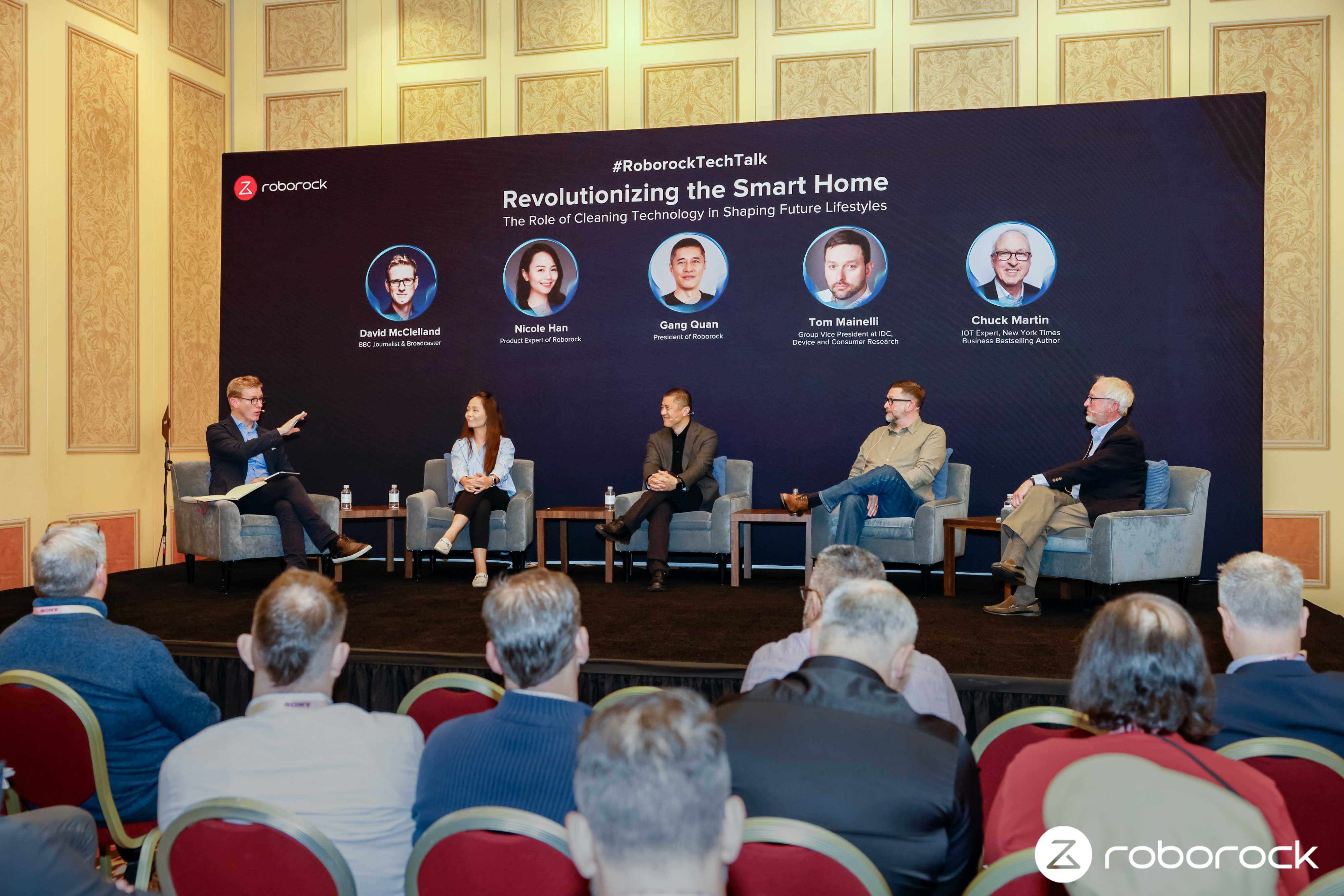A paradigm shift has swept through the smart home industry, emphasizing not just functionality but also intuitive capabilities in home cleaning devices. It’s no longer a futuristic dream to tell your vacuum to switch from suction to mopping mode, targeting spills or giving your hard floors a thorough cleanse. Yet despite these innovations, the industry is at a crossroads: Home cleaning devices can do more than ever, but all too often, people can’t use them as easily as they want to.
That’s why Roborock, a pioneering leader in smart home cleaning, isn’t just building vacuums—it’s developing smart companions that understand home and cleaning needs like never before. Imagine commanding your cleaning assistant with a simple voice prompt or effortlessly integrating it into your smart home ecosystem. With cutting-edge tech and thoughtful design, Roborock strives to make a cleaning experience a seamless, automatic, and intuitive part of daily life, setting a new standard for smart home technology that truly listens to what customers want.
Investing in consumer-centric solutions
With smart homes getting smarter, the global smart vacuum cleaner market is projected to grow from $11.97 billion in 2021 to $50.65 billion in 2028. However, at this moment of breakthrough innovation, there’s a paradox at play in the market: Shipments of smart home devices are declining, according to an IDC analysis, and Gen Z shows the least satisfaction among consumer groups despite increasing interest in smart homes. The decline in smart home device shipments raises questions about the gap between consumer expectations and delivered experiences.
Smart home gadgets simply don’t work as they should, according to IDC research. Most commonly, people discover that many smart devices don’t provide the promised level of convenience—and, in some cases, even add complexity to the cleaning process. Many have a hard time integrating their smart vacuums into existing home ecosystems, like Alexa and Google Assistant, leading to a disjointed experience. Families, especially those with pets or kids, expressed dissatisfaction with the lack of customized solutions.
In a recent white paper, “Autonomous Cleaning Changes the Game for the Future of Smart Vacuums,” Roborock investigated how innovations in smart cleaning technology can address these consumer frustrations. The heart of the message? By revolutionizing smart cleaning tech, Roborock is making our homes not just smarter but more in tune with what we need. It’s all about creating a seamless, enjoyable experience for everyone. Central to their approach is the importance of autonomous cleaning—employing intelligent sensors and technology to enable devices that adapt to their environment and adjust cleaning routines.
The company’s response to market demands includes incorporation of advanced interoperability and voice control features, notably the intelligent voice assistant, which empowers users with hands-free control. Simply by saying “Hello Rocky,” users can schedule when, where, and how to clean and adjust cleaning settings, allowing a hands-free cleaning experience.
Roborock’s commitment to a customer-centric approach also shines through in its innovative use of LiDAR (Light Detection and Ranging) technology. By leveraging next-gen LiDAR sensors, a smart vacuum can measure distances with high resolution and create a virtual, highly accurate blueprint of its surroundings. This precision is indispensable in obstacle detection and avoidance, allowing a vacuum to avoid collision with household objects or pets.
The resulting LiDAR data isn’t merely detected: Instead, it actively informs the cleaning process. By creating and utilizing virtual maps of a home, Roborock devices can optimize every cleaning session, remembering and adapting to the unique setup of each room. Thanks to these advanced navigation features, Roborock took the spotlight as this year’s Wirecutter pick for the best smart vacuum.
Roborock’s core philosophy is that a smart cleaning device should clean as good as a person. But conventional cleaning solutions often miss tricky spots like corners and edges, undermining the essence of autonomous cleaning. Enter the VibraRise mopping system—a distinctive feature in Roborock’s advanced robotic vacuum cleaners. This cleaning-tech uses rapid vibrations to enhance the mopping pad’s effectiveness by providing steady contact with various floor surfaces using the FlexiArm Design Side Brush, an adjustable component that adds pressure to the mop pad as it cleans. When Roborock detects those tricky corners and spaces beneath furniture, the FlexiArm extends automatically, conquering once-inaccessible areas for an exceptionally efficient edge cleaning.
“At Roborock, whenever we create a smart vacuum, a washer-dryer, or a new cleaning gadget, we always start by asking ourselves one essential question,” said Gang Quan, President of Roborock. “Do these features that we’re introducing genuinely enhance our users’ experience?”
Redefining the smart home experience
Roborock’s commitment to revolutionizing and consolidating the smart home experience extends beyond vacuum technology, as highlighted in their recent panel at CES 2024. The discussion underscored how Roborock’s transformative approach is aimed at redefining the way consumers interact with their homes, specifically regarding the integration of AI and IoT.

Through its advanced AI capabilities, Roborock devices can perform complex tasks such as navigation, obstacle avoidance, and optimized cleaning paths. Its Reactive AI 2.0 Obstacle Recognition uses a 3D structured light and RGB camera so smart vacuums can recognize different obstacles, adjusting a cleaning route instantly to avoid collisions. When dealing with stubborn stains, the Intelligent Dirt Detection system kicks in, ensuring thorough cleaning by revisiting and targeting these areas. And for pet owners who might struggle with the extra mess that comes with owning a furry companion, Roborock also has a dedicated Pet Mode which recognizes pets and pet supplies like bowls and beds, automatically providing higher suction around these items for a perfect clean every time.
“We develop technology so that people can spend more time on the things they love and less time on chores like cleaning,” Quan said during the CES panel.
Through AI and seamless connectivity, Roborock wants to create an interconnected ecosystem within the home, where devices communicate effortlessly between each other to understand and anticipate user needs. Think of it like the Jetsons, where the harmony of automation transforms homes into intelligent spaces that proactively cater to individual preferences, allowing occupants to enjoy a future where technology serves as an invisible, intuitive assistant, enhancing the overall quality of life. In this future, homes are not just smart but genuinely attuned to the daily rhythm of the people who inhabit them.
“At Roborock, we’re passionate about redefining how technology interacts with your daily life,” Quan said. “Our aim is to create technology that blends into people’s daily routines, intuitively understanding users and operating in harmony with other smart devices.”
Embrace the future of smart living: Visit Roborock.com to find the perfect smart vacuum for your home.


































